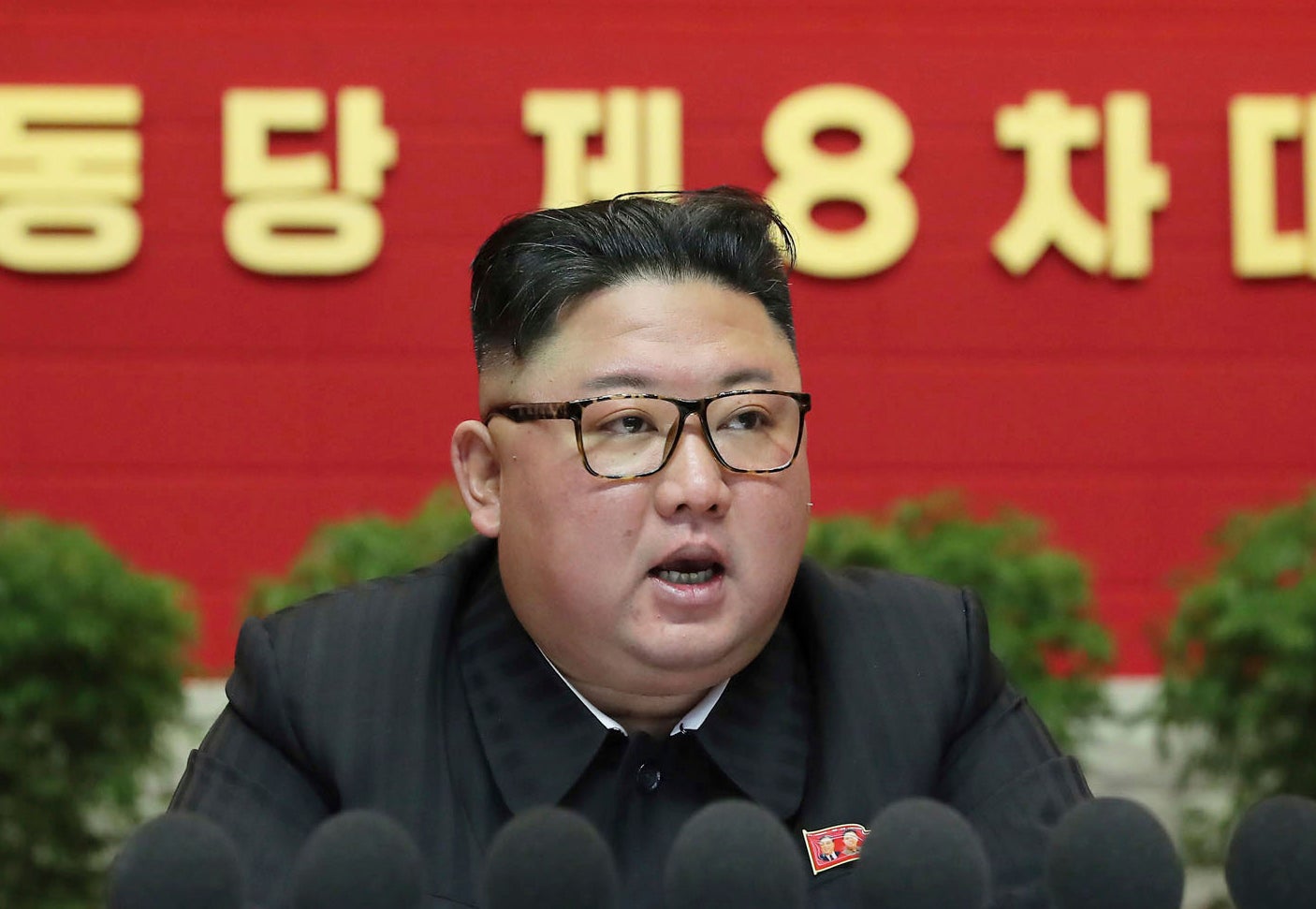N. Korea's Kim adds title: General secretary of ruling party
North Korea's state media reports leader Kim Jong Un was given a new title, “general secretary” of the ruling Workers’ Party, at the party's ongoing congress

North Korean leader Kim Jong Un was given a new title, “general secretary” of the ruling Workers’ Party, formerly held by his late father and grandfather, state media reported Monday, in what appears to a symbolic move aimed at bolstering his authority amid growing economic challenges.
The party’s ongoing congress, the first in kind in five years, announced Kim’s new title during its sixth-day session on Sunday. A congress statement said Kim “has gloriously realized the historic mission to complete the country’s nuclear build-up plan,” according to the official Korean Central News Agency.
It’s largely a symbolic appointment as Kim already was the party’s top leader. During a 2016 party congress, he was named to “party chairman,” the equivalent of “general secretary” held by his father Kim Jong Il and grandfather Kim Il Sung. Before the 2016 congress, Kim Jong Un had led the party with the title of “first secretary.”
Since inheriting power upon his father’s death in late 2011, Kim, 37, has gradually consolidated his grip on power through a series of high-profile executions and purges that removed his potential rivals. He has also taken up a spate of top jobs that includes chairman of the State Affairs Commission and supreme commander of the North’s 1.2 million-member military, along with the top party post.
The two late North Korean leaders have kept posthumous titles — Kim Jong Il remains “eternal general secretary” and Kim Il Sung is “eternal president.”
The Kim family has ruled North Korea with a strong personality cult that elevated key family members to a god-like status since Kim Il Sung founded the country in 1948. Their family’s mythical “Paektu” bloodline, named after the highest peak on the Korean Peninsula, only gives their direct family members the rights to rule the impoverished yet nuclear-armed nation.
Among notable personnel changes announced Monday was the name of Kim Jong Un’s influential sister, Kim Yo Jong, missing from a new list of officials at the party’s powerful Politburo. Being in charge of relations with rival South Korea, she was an alternate member of the Politburo and some observers earlier predicted she would be promoted to a full member of the bureau in a bid by her brother to reinforce the Kim family’s rule. It wasn’t immediately clear why the 32-year-old was dismissed from her Politburo post.
On Sunday, state media said the congress had determined to change the party’s “Executive Policy Council into Secretariat.” The decision would lead to party officials to relinquish their current titles such as chairman and vice chairman and start using old titles such as secretary or vice secretary.
The congress is being held as Kim faces what appears to be the toughest moment of his nine-year rule amid the COVID-19 pandemic and following a series of natural disasters this past summer.
During the congress, Kim Jong Un vowed to enlarge his nuclear arsenal and build more sophisticated weapons systems to cope with what he calls intensifying U.S. hostile policy. He also admitted a previous five-year economic development plan failed and disclosed a new development that focuses on building a stronger self-reliant economy.
Kim has pushed the so-called “byungjin” policy of simultaneously seeking economic growth and the expansion of his nuclear weapons as a deterrent to the U.S. After claiming to have achieved the ability to strike the U.S. mainland with nuclear weapons, Kim launched high-stakes summits Trump in 2018, but their diplomacy later fell apart due to wrangling over the sanctions the following year.
Bookmark popover
Removed from bookmarks